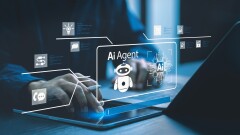Whether you think artificial intelligence will usher in a great new era in accounting, or signal the profession's imminent downfall, you can find someone who will agree with you.
"We as a society are attaching all of our hopes and fears on AI," Bill Whyman, founder and principal of consultancy Tech Dynamics, told attendees at the AICPA's AI in Accounting & Finance Symposium, held last week in New York City. "Marc Andreessen says all the fear is irrational; he's worried we're going to miss out on all the opportunities from AI. On the other hand, two out of three winners of the Turing Prize say AI represents an existential threat to humanity."
Speakers at the symposium laid out a host of ways — both positive and negative — that AI will impact accounting, from commoditizing large parts of the profession's traditional work to creating whole new areas of demand for attest services.
While there was no consensus on whether AI's long-term impact will be positive or negative, it was clear that will be significant.
For example, Gartner managing vice president Matthew Kiel noted, "By 2029, one-third of finance staff will occupy 'shared jobs' where AI and the person are responsible for a single job role together."
At the same time, the transformation to an AI-driven world will generate opportunities for everyone's favorite most-trusted advisor.
"Public accounting firms are farther ahead than those in business and industry, and that creates opportunities," explained AICPA president and CEO Mark Koziel. "The firms can help their clients in industry. We are well-positioned to take these technologies and bring them to our clients."
"AI is not going to disrupt the accountant — it'll change what the accountant does, but it will not replace the accountant," Koziel concluded. "As long as we keep up with the skills we need, we'll continue to be a profession that prospers far into the future."
With that in mind, here are 10 takeaways from the symposium that demonstrate the imminent major impact AI will have — and how much we still have to figure out about it.















